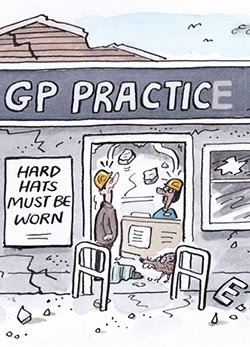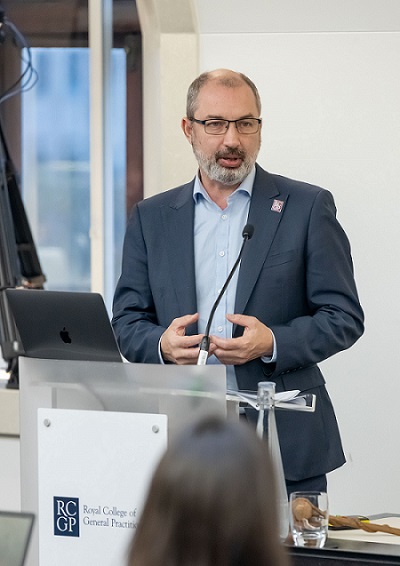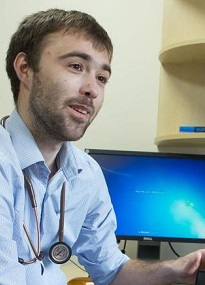

General Election: In the hot seat
The Royal College of GPs’ consultation with members about the role of Physician Associates working in general practice closed on Friday.
More than 5,000 members – including more than 1,600 GP registrars - completed the survey, making it one of the most widely engaged with in recent College history.
The consultation was conducted by independent polling company, Research by Design (RbD) which will now carefully analyse the results. Current plans are to publish the results of the survey in June, ahead of the next UK Council meeting on 22 June.
It asked questions in four categories, covering experiences members have had with PAs in general practice, how members think PAs should work in general practice, and more generally what members consider the benefits and risks of PAs working in general practice.
The College embarked on the consultation process following its governing UK Council meeting in March. As well as giving a mandate to survey members about their views on PAs working in general practice, in order to inform any further work by the College in this area, Council also agreed to update and strengthen the RCGP’s existing red lines on the issue.
The RCGP’s position now stipulates:
- PAs working in general practice must always work under the supervision of qualified GPs.
- PAs must be considered additional members of the team, rather than substitutes for GPs.
- PAs do not replace GPs or mitigate the need to urgently address the shortage of GPs.
- PAs must be regulated as soon as possible.
- Public awareness and understanding of the PA role must be improved.
- Training, induction and supervision of PAs within general practice must be properly designed and resourced.
- At a time of significant GP workforce challenges, funding allocations, resources and learning opportunities within general practice must be prioritised for the training and retention of GPs.
- The significant responsibility and skills required for supervision must be recognised and resourced, with GPs able to choose whether they are willing to undertake supervision of PAs. PAs should not be employed unless sufficient supervision can be provided.
College Council also decided that the RCGP should oppose the GMC as the most appropriate body to regulate PAs.
The College plans to use the results of the consultation to inform any further work it does around PAs working in general practice, including the development of guidance. This will likely involve further member and stakeholder engagement.
Professor Kamila Hawthorne, Chair of the Royal College of GPs, said: "Thank you so much to all members, including registrars, who have completed our consultation – the high number of responses we have received speaks to the strength of feeling on this issue, which is something we will be mindful of as we move forward. As a College we are committed to being open and transparent, and will be publishing the results of the consultation in due course.
“It is the College’s position that PAs can potentially fulfil a supportive role in general practice by taking on specific workload areas, but this must be done in the right way, and in line with our red lines. We plan to use the results of this consultation to determine what policy and guidance we can develop to ensure PAs can be deployed in general practice in a way that ensures the safety of our patients and the sustainability of our healthcare system.
“Meanwhile we will continue to be clear to decision makers and in the media that PAs are not GPs, cannot replace GPs, and must not be used to ‘plug the gaps’ of GP shortages that have been created by years of underinvestment and poor workforce planning.
“GPs are the equivalent of hospital consultants, specialising in general practice, and we need thousands more of us to deliver the increasingly complex care our patients need. No matter how many additional roles are introduced, they will never be a substitute for GPs and decision and policymakers need to realise this.”
Read more
Thank you for your feedback. Your response will help improve this page.



